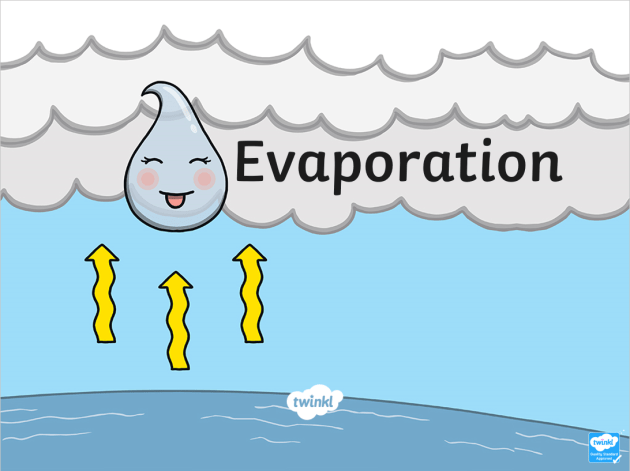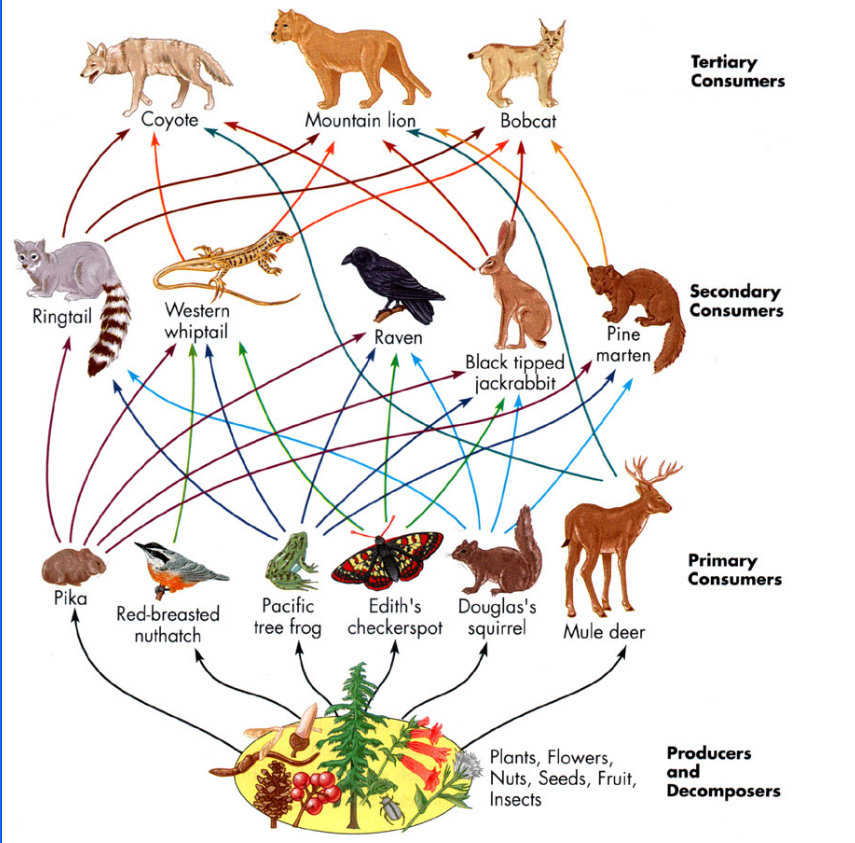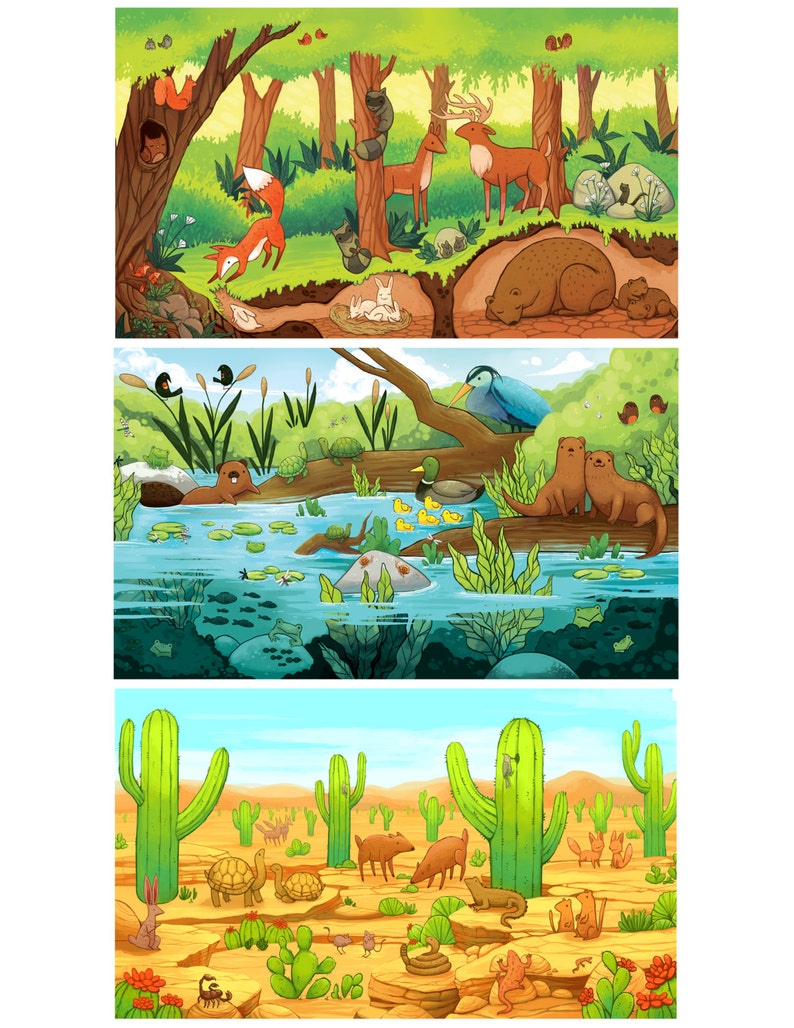This large treeless area due to the frozen ground.
Tundra
Precipitation that falls to the ground is part of this cycle.
Water Cycle
This symbiotic relationship is where both organisms benefit from each other. An example would be a honey bee and a flower.
Mutualism
The wind is considered part of this nonliving factor.
Abiotic Factor
The animal that is being hunted.
Prey
With its four seasons, abundant wildlife, and trees that lose their leaves.
Deciduous Forests

Water Cycle
When one organism benefits by harming another organism.
Parasite
All members of a single species in an area at a given time.
Population

Food Web

Desert
The gas CO2 is in the air when it is part of this cycle.
Carbon Cycle

Mimicry
All the living things in an ecosystem.
Community
The path of food energy in an ecosystem that begins with producers.
Food Chain
Many birds are found nesting in the emergent layer of this biome.
Tropical Rain Forest
![]()
What is Reduce Reuse Recycle
Any characteristic that helps an organism survive in its environment.
Ecosystem
An animal that eats both plants and other animals.
Omnivore
These two biomes are very similar in regard to having snow. But this biome has evergreen trees.
Taiga
The breaking down of dead or decaying plants and animals by decomposers is part of this cycle.
Carbon Cycle
A relationship between two or more kinds of organisms that lasts over time.
Symbiosis
All the living components or organisms in an ecosystem.
Biotic Factors
A living thing that gets energy by eating plants or another animals.